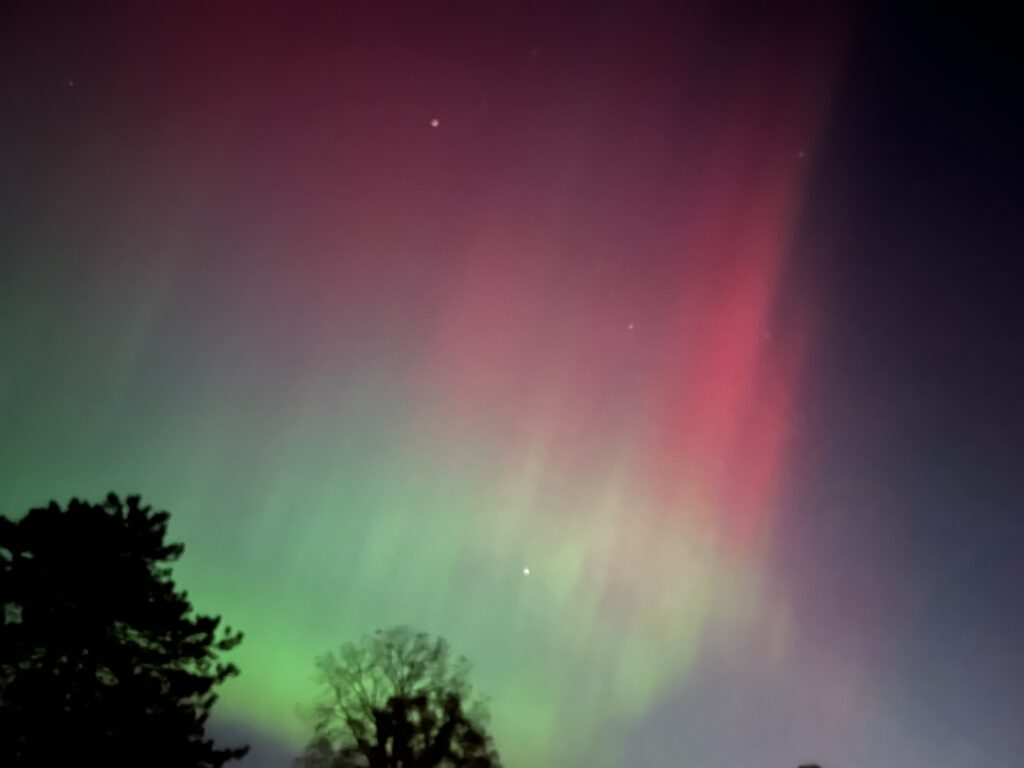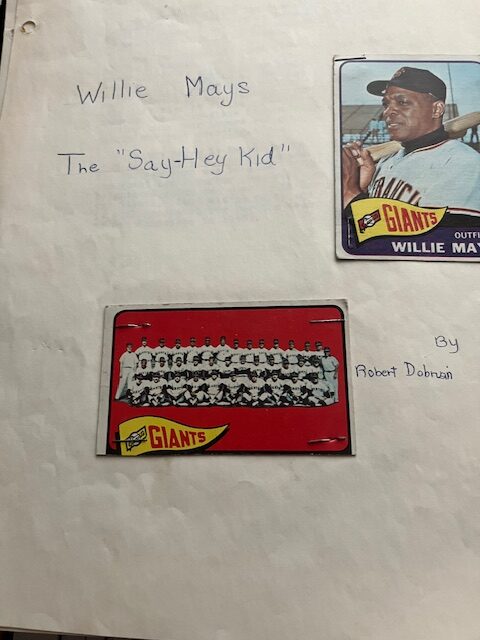I discuss this idea in greater detail in my most recent podcast episode, entitled “Did I See It?”. You can hear the podcast at wrestlinganddreaming.podbean.com or other sources for podcasts.
Last week, I fulfilled a long-time ambition.
Or did I?
I was watching the news on Thursday evening when I heard that the Northern Lights would be visible all over Michigan. I was so excited as I have wanted to see the Lights for my entire life and never had been in the position to see them.
This was my chance.
So, I got into my car at 10 p.m. and drove to a road near my house where I knew I could see the northern sky.
I pulled the car over. It was dark and somewhat desolate.
I got out and looked up.
I saw something: a streak or two of lighter color, not unlike a cloud, varying the appearance of the sky.
There it was. But, was this the best I could hope for? I was disappointed.
Then, I remembered what I had learned from others. You had to look through your cell phone camera to really see the lights.
So, I held my cell phone and took a picture. It immediately went to “night mode” and held the aperture open a few seconds. Then it clicked.
And I saw the most glorious sight: the brilliant colors of the Northern Lights filled the sky.
Here is the picture. Enjoy it. But please continue reading after you admire the photo.

I was thrilled. I immediately texted the picture to my wife, Ellen, and was absolutely giddy.
I then started to say the proper blessing for any astronomical phenomenon involving light: Blessed be God who performs the acts of creation.
But I suddenly stopped before I said the second word of the blessing.
I looked again at the sky without the aid of the camera and my joy was tempered quite a bit. There was still that grey streak and nothing more.
And I began to think. Had I really seen the Northern Lights?
I know that those further north, perhaps those in a darker place, saw colors with the naked eye. But I had not. All that I had done was to take a picture and that picture, as beautiful as it was, was like dozens of others I have seen. I know the colors were actually there and that it was the limitations of my human eyes which prevented me from seeing them. But I had not seen them. My camera saw them.
So, seeing the Northern Lights is still on that list of experiences I want to have in my life. I want to see them with my eyes, not the camera’s.
And this made me think about how many times we settle for indirect experiences rather than truly experiencing something wonderful for ourselves.
Sometimes that is inevitable. I will never fly into space, so I’m satisfied seeing pictures of the marvelous round ball of the earth. I will never skydive (I guarantee you) so I will have to marvel at the experience through someone’s hand-held camera as they fly through the sky. I can’t travel back in time to before I was born so I have to be satisfied seeing YouTube videos of the 1946 World Series (which the Red Sox lost by the way).
But there are so many other experiences which I am so grateful for having done.
Seeing Saturn’s rings through a telescope (but with my eyes) was breathtaking in a way that a picture could never be. Hiking in the Sinai Desert and through Zion National Park were unforgettable and could never be matched by a video travelog.
And, on another level, walking with or sitting and comforting dogs waiting for adoption at our local Humane Society I could be a part of their work means so much more than just the very important act of writing a check. (We should do both for the causes we support.)
This difference between two types of experiences is critical in so many areas of life including one which I have been thinking about quite a bit for the last few years.
I don’t at all denigrate those who by necessity attend synagogue services online while sitting at home. It is a great benefit of technology that this can be done and that those who are homebound, ill or far from home can participate in the familiar ritual. Having experienced it myself when weather prevented us from attending a family simcha, I am tremendously grateful for this advancement.
But, for those who can attend in person, I can’t urge you enough to go beyond the experience which was so vital over COVID and come to shul. It is such a completely different experience when you are sitting in and with the congregation. It is the difference between actively experiencing something beautiful and meaningful as opposed to seeing it only through a picture. As beautiful as the picture can be, it can’t match experiencing it directly.
This year, may we find more ways to do things with our own hands and see things with our own eyes.

